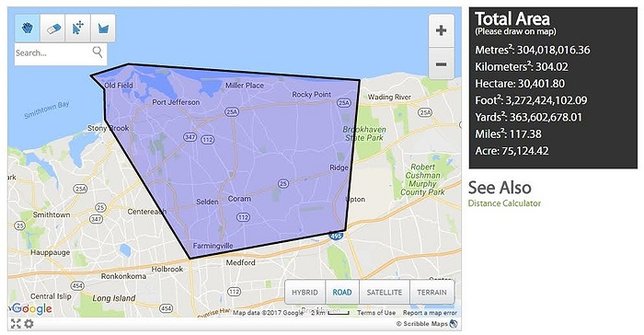Town of Brookhaven, NY - February 16, 2017 - Suffolk Health Commissioner Dr. James Tomarken announced today that the Department of Health Services will conduct enhanced rabies surveillance in northern parts of the Town of Brookhaven following the confirmation of rabies in a deceased river otter collected from Sound Beach by wildlife specialists in December 2016.
Rabies is a viral disease that is transmitted from infected mammals to humans and between animals. People can get rabies if they are exposed to the saliva or nervous tissue of a rabid animal, usually through a bite.
The area of enhanced surveillance is bordered by Nicolls Road to the west, the Long Island Expressway to the south, William Floyd Parkway to the east and the Long Island Sound to the north, including the shoreline from Old Field to Rocky Point. Individuals are asked to report sightings of animals that are dead or behaving abnormally within the defined area to the Suffolk County Department of Health Services (SCDHS) by calling 631-852-5900, Monday through Friday, between 8:30 a.m. and 4:30 p.m.
“Suffolk County has an ongoing countywide rabies surveillance program that we will be enhancing in this area out of abundance of caution and in light of this new information,” said Dr. Tomarken.
Reporting Guidelines for Suffolk County:
- Individuals who see any dead or abnormally acting raccoons, skunks, foxes, river otters or other wildlife within the defined area in the Town of Brookhaven should report the sighting.
- Individuals who visited the beach in Sound Beach in December 2016 and had any contact with a river otter or have pets that had any contact with a river otter during that visit should report this to the SCDHS by calling 631-854-0333, Monday through Friday, between the hours of 9:00 a.m. and 5:00 p.m. After hours, call 631-852-4820.
- Enhanced rabies surveillance for the Towns of Huntington and Babylon, which began in March 2016 following the confirmation of a rabid raccoon in Nassau County, is still in effect. Individuals of these towns should continue to report wildlife that is acting abnormally.
- Individuals of Suffolk County who live in areas other than those defined above are asked to report raccoons, skunks, foxes, river otters or other wildlife that have come into contact with humans or pets. Dead wildlife found in these areas should be discarded in the garbage in a safe manner as described below and with no direct physical contact with people or pets.
Rabies Protection Guidelines:
New York State and Suffolk County law requires that all dogs, cats and ferrets be vaccinated against rabies. Vaccinating your pet not only provides protection for the animal, but vaccinated pets act as a barrier to keep the rabies virus from spreading between wild animals and people. It is very important to make sure that these animals, as well as livestock and horses have current rabies vaccinations. To further protect yourself from possible exposure to rabies:
- Keep dogs, cats and ferrets on a leash and keep livestock confined in the evening.
- Do not have contact with any animal other than your own.
- Do not feed wildlife or stray animals and discourage them from seeking food near your home.
-
Do not touch dead or dying animals. Use a shovel, wear rubber gloves and double bag the
carcass, if you need to move them. - Do not approach an unknown animal, either wild or domestic, especially if it is acting in an unusual way.
- Keep garbage cans tightly covered and avoid storing any food outside.
- Children should be advised to tell an adult immediately if they were bitten or scratched by any animal.
- To prevent the possible spread of the rabies virus, no one, including trappers and nuisance wildlife rehabilitators, should transport and relocate any wild animals at this time.
For more information on rabies and wildlife:
- New York State Department of Health website
- New York State Division of Environmental Conservation, Bureau of Wildlife at 518-402-8920
- Centers for Disease Control and Prevention website










